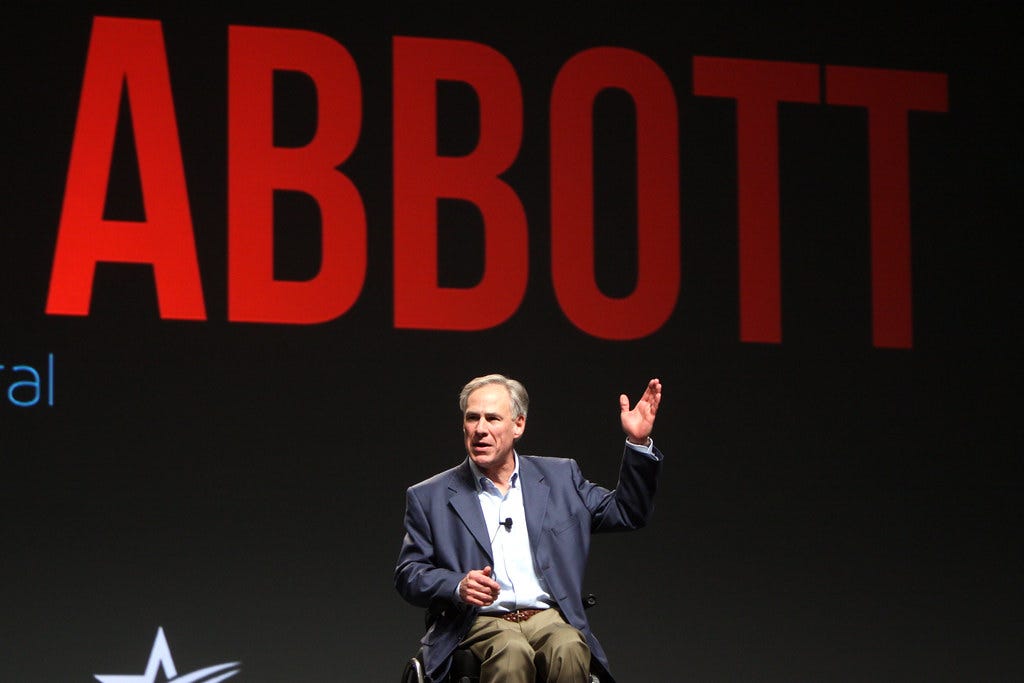Houston Businessman Andrew White Launches Democratic Challenge to Governor Abbott in Personal Quest for Change
Son of former Texas governor cites July 4 flood that nearly killed his son as motivation for taking on Abbott's bid for unprecedented fourth term
Houston businessman Andrew White launched his second bid for Texas governor on Wednesday, positioning himself as an “Independent Democrat” focused on solving problems rather than waging culture wars as he challenges Governor Greg Abbott’s quest for an unprecedented fourth term in office. White, the son of former Democratic Governor Mark White, cited deeply personal motivations for his campaign—including how his son nearly died in the catastrophic July 4 Hill Country floods that killed at least 134 people.
A Personal Tragedy Sparks Political Action
“It’s time for a new approach,” White declared in his campaign announcement. “Whether it’s floods, school shootings, or the grid failing, we need leaders who prepare us before disaster strikes, not just show up after”. The 53-year-old entrepreneur revealed that his family’s experience during the devastating July 4 floods, which represent the deadliest inland flooding in the United States since 1976, catalyzed his political comeback.
The catastrophic flooding along the Guadalupe River claimed 134 lives, including 27 children and counselors at Camp Mystic, a Christian summer camp for girls. White’s personal connection to the tragedy—his son’s near-death experience—underscores his criticism of Abbott’s emergency preparedness and response capabilities.
Targeting Abbott’s Vulnerabilities
White’s campaign strategy focuses squarely on Abbott’s perceived weaknesses, particularly his handling of infrastructure failures and opposition to federal funding. The Democratic challenger argues that Abbott “answers to extremists” and has cost Texas billions by refusing to expand Medicaid, leaving approximately $5-6 billion in federal funding on the table annually.
According to health policy experts, Texas’s refusal to expand Medicaid under the Affordable Care Act has resulted in the state missing out on massive federal investments that would have provided healthcare coverage to low-income residents while generating an estimated $100 billion economic impact over ten years.
White also highlighted Abbott’s role in the 2021 Winter Storm Uri disaster, which left more than 4.5 million Texans without power and killed at least 246 people. Despite Abbott’s claims of grid improvements, White argues that fundamental vulnerabilities remain, noting that “ERCOT was four minutes and 37 seconds away from complete failure” during the crisis.
Political Landscape Favors Democratic Challenges
Abbott enters the 2026 race facing several political headwinds despite his massive fundraising advantage of nearly $90 million. Recent polling shows the incumbent governor with approval ratings of just 41% approval and 44% disapproval. At the same time, the Texas Legislature—controlled by Abbott’s Republican Party—has earned dismal ratings of only 22% approval among Texans.
The governor’s handling of controversial issues has also created political vulnerabilities. His initial support for banning THC products proved highly unpopular, with 53% of Texans opposing the ban, including 46% of Republicans. Abbott ultimately vetoed the legislation after significant public pressure, but the episode highlighted his disconnect with voters on specific issues.
Family Legacy and Political Evolution
Andrew White’s entry into the gubernatorial race represents a return to his family’s political roots. His father, Mark White, served as Texas’s 43rd governor from 1983 to 1987, implementing significant education reforms before losing reelection, partly due to the unpopular “no pass, no play” rule, which required students to maintain academic standards to participate in sports.
The younger White initially avoided politics, building a successful business career that included founding Allied Home Warranty, which was acquired by energy giant NRG in 2012. His first gubernatorial campaign in 2018 ended unsuccessfully when he lost the Democratic primary to former Dallas County Sheriff Lupe Valdez, who subsequently lost to Abbott by more than 13 percentage points.
Democratic Primary Battle Ahead
White faces a competitive Democratic primary field that includes Bobby Cole, a rancher and retired firefighter who announced his candidacy in March, as well as Bay City Councilman Benjamin Flores. The primary also features retired Marine Nick Pappas and other potential candidates, though party insiders note the lack of high-profile challengers willing to take on Abbott’s formidable political machine.
Political observers note the challenges Democrats face in Texas, where the party hasn’t won a statewide race since 1994. However, some analysts suggest that Abbott’s vulnerabilities, combined with potential midterm election headwinds for the incumbent party, could create opportunities for Democratic challengers.
Campaign Finance and Electoral Mathematics
Abbott’s financial advantages present significant challenges for any Democratic opponent. The incumbent governor has raised nearly $90 million for his reelection campaign, a massive war chest that dwarfs typical gubernatorial fundraising. In his 2018 campaign, White loaned his own campaign $1 million, and he has indicated he is prepared to make substantial personal investments again.
The electoral mathematics in Texas remains daunting for Democrats. In 2022, Abbott defeated Democratic nominee Beto O’Rourke by a margin of 54.8% to 43.9%, demonstrating the governor’s continued appeal to Texas voters despite various controversies. O’Rourke’s loss marked his third unsuccessful statewide campaign in four years, highlighting the challenges facing Democratic candidates in the traditionally red state.
Policy Contrasts and Culture War Positioning
White’s campaign emphasizes his identity as a “problem solver” rather than a “culture warrior,” directly contrasting with Abbott’s approach on social issues. The Democratic challenger has positioned himself as focused on practical governance challenges, such as infrastructure, healthcare, and economic development, rather than divisive social policies.
This positioning may resonate with Texas voters who have expressed frustration with the legislature’s focus on cultural issues while practical problems persist. Recent polling found that 37% of Texans believe the legislature made their lives “somewhat worse” or “a lot worse” during the most recent session.



